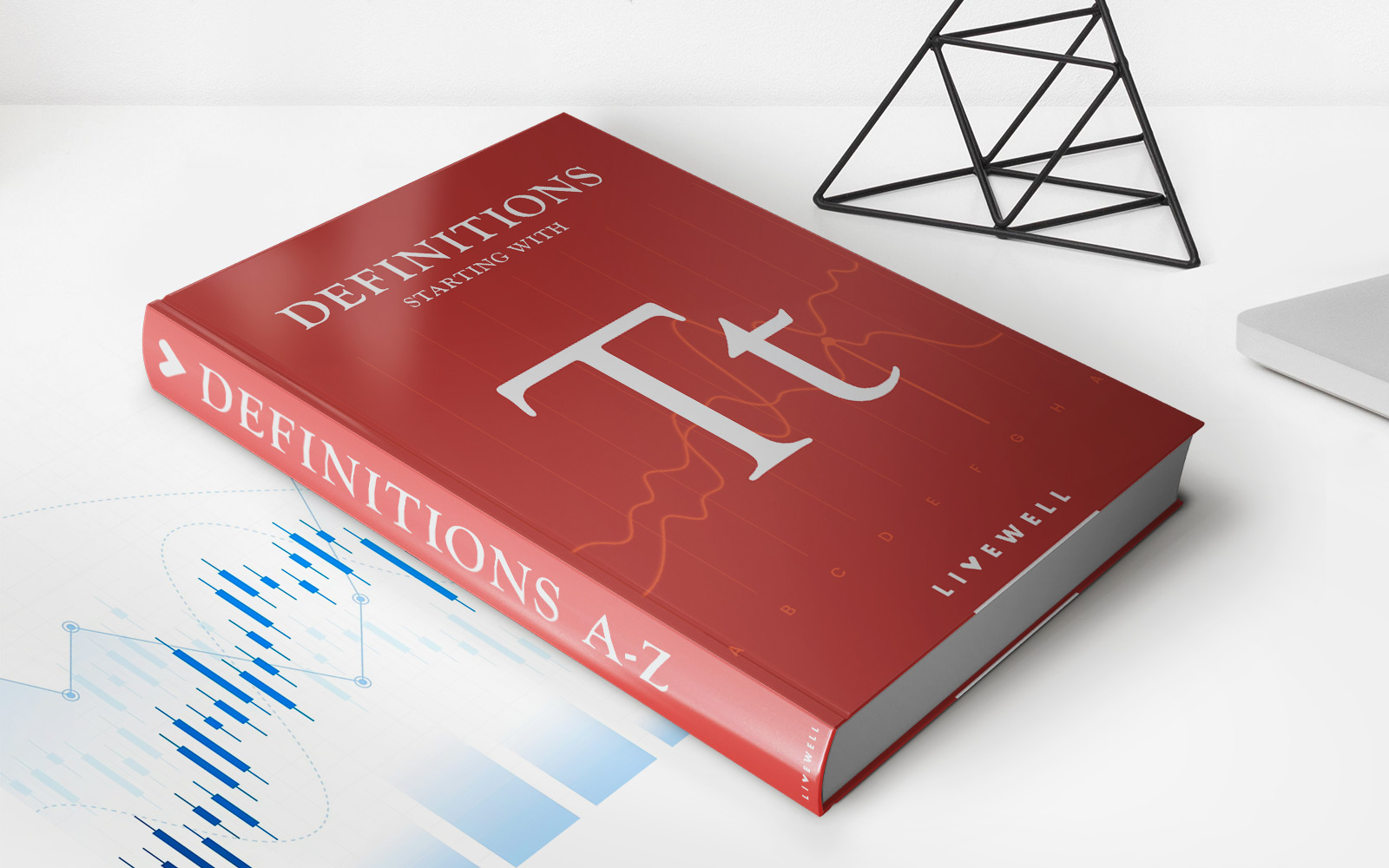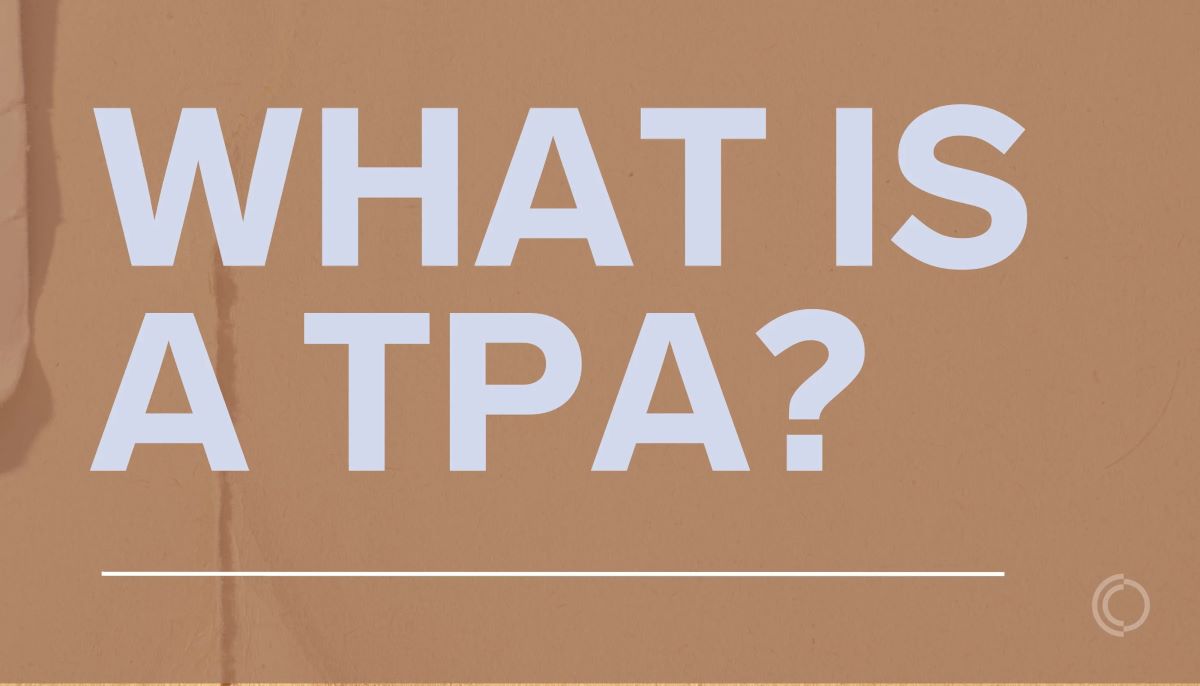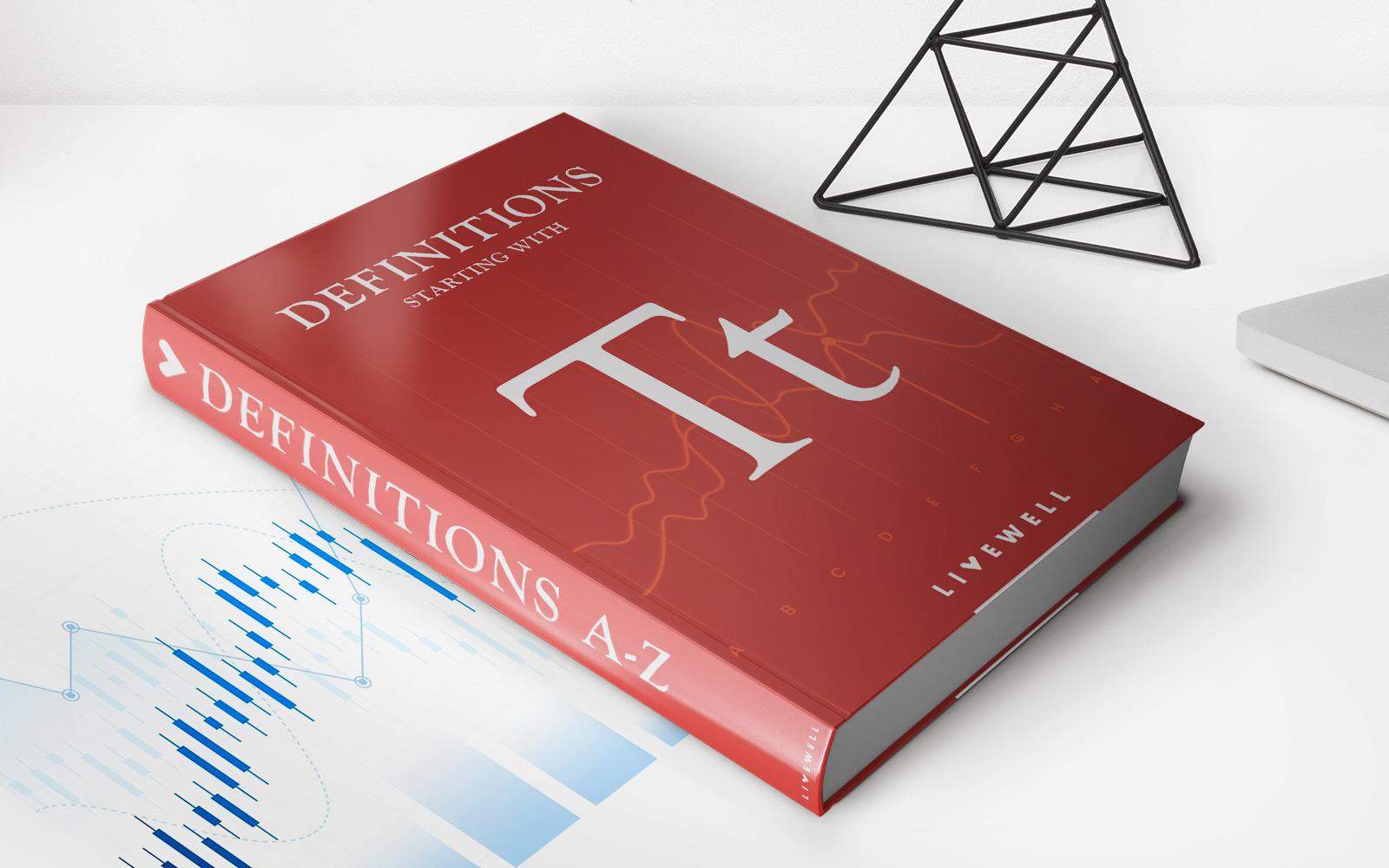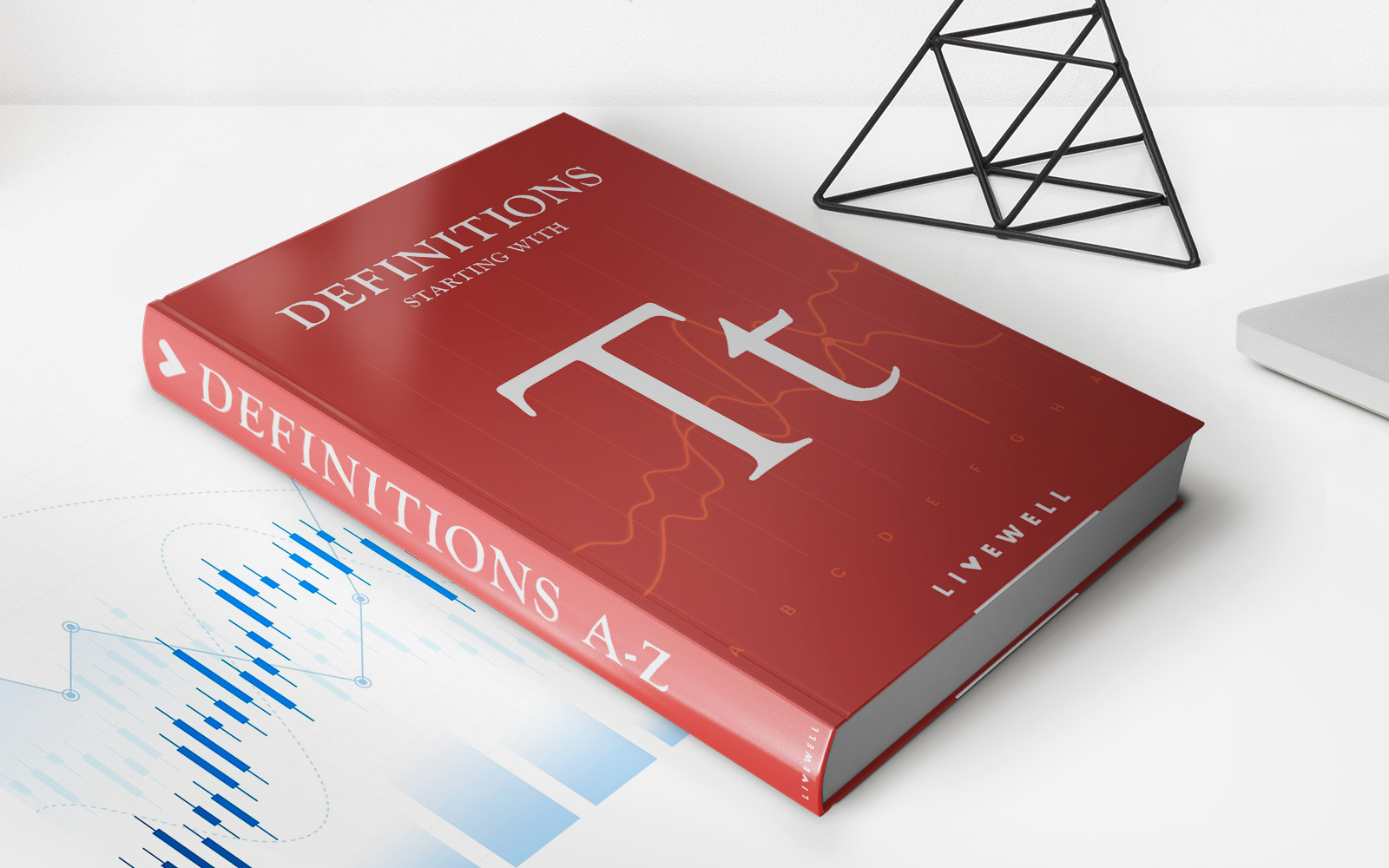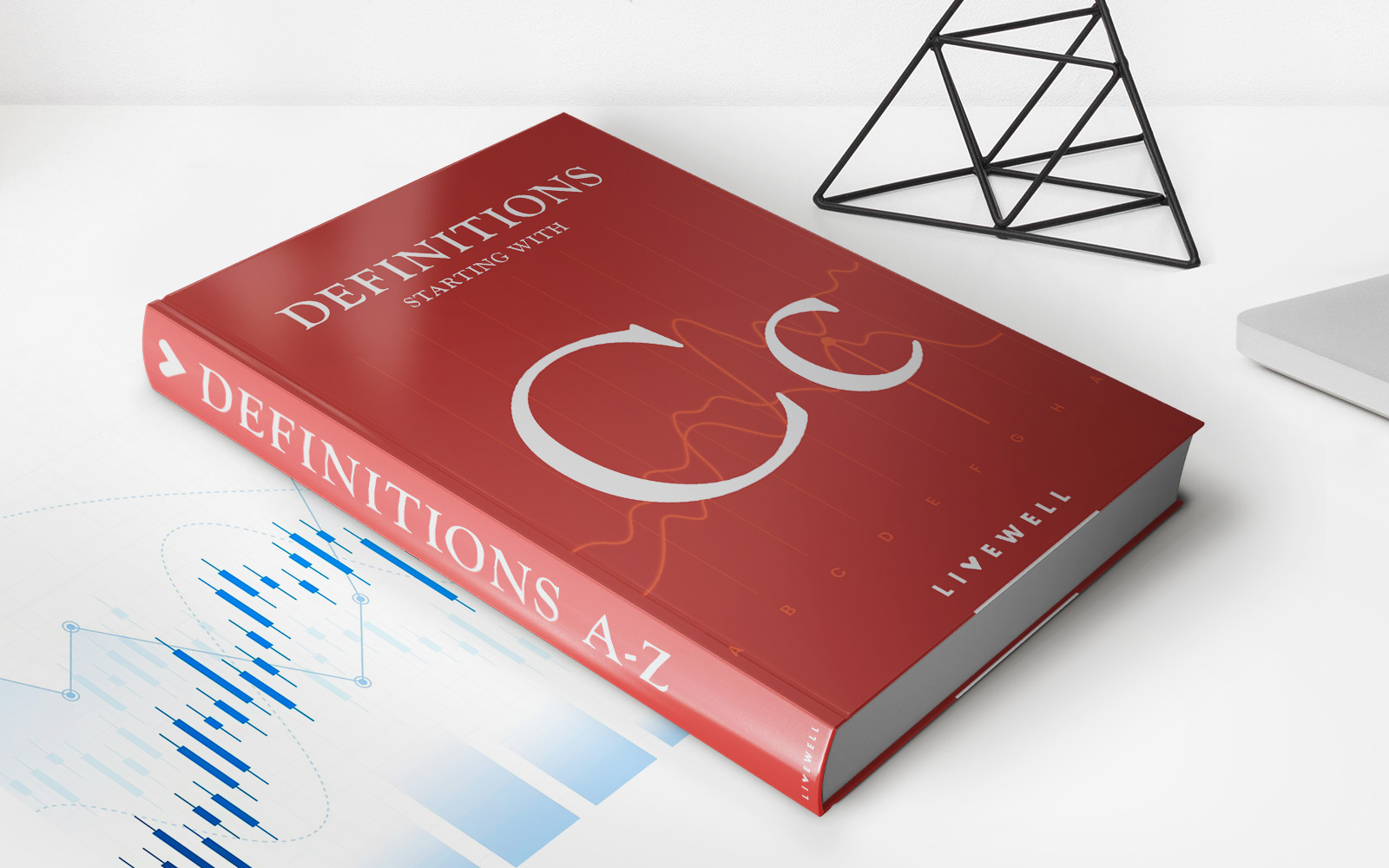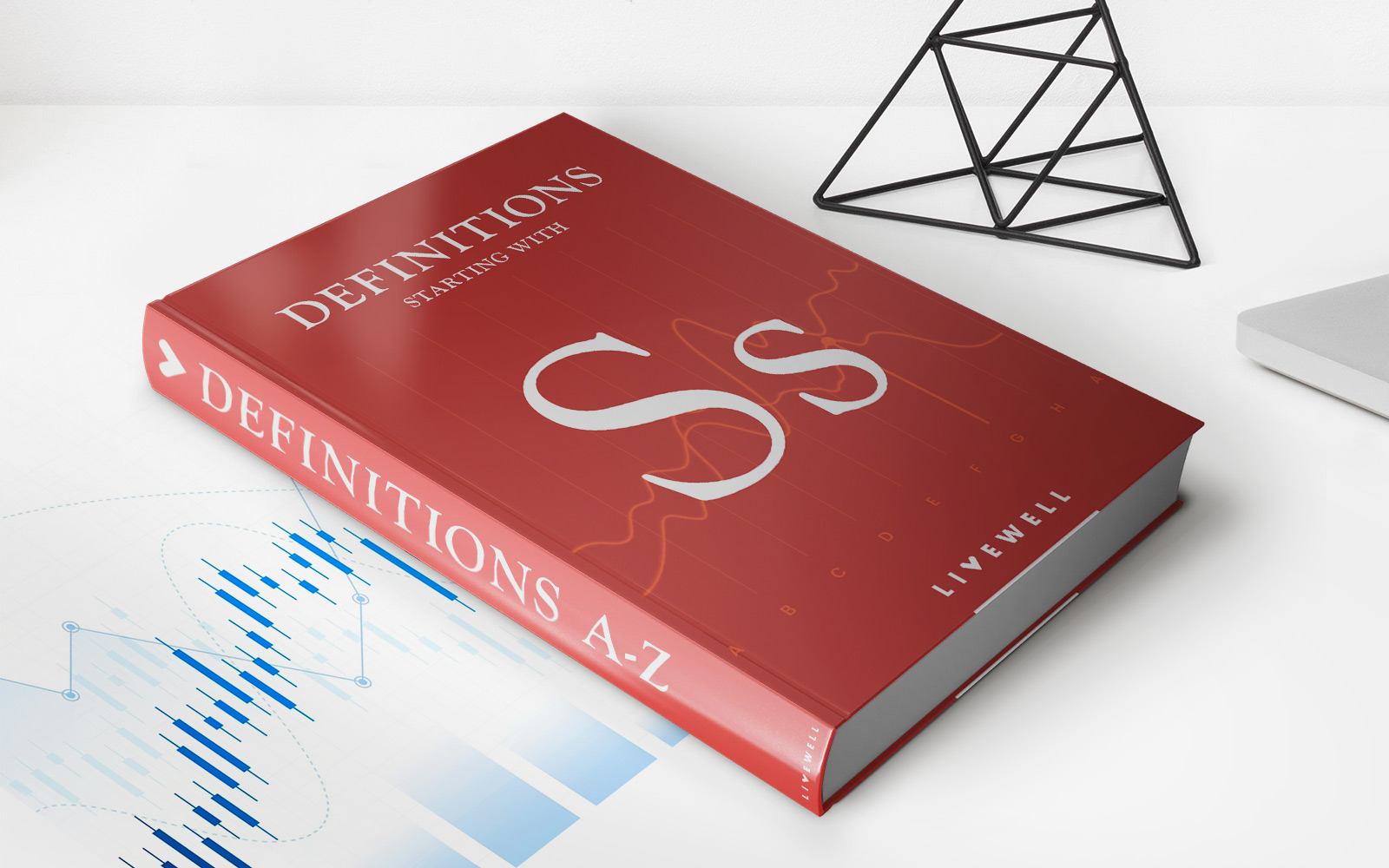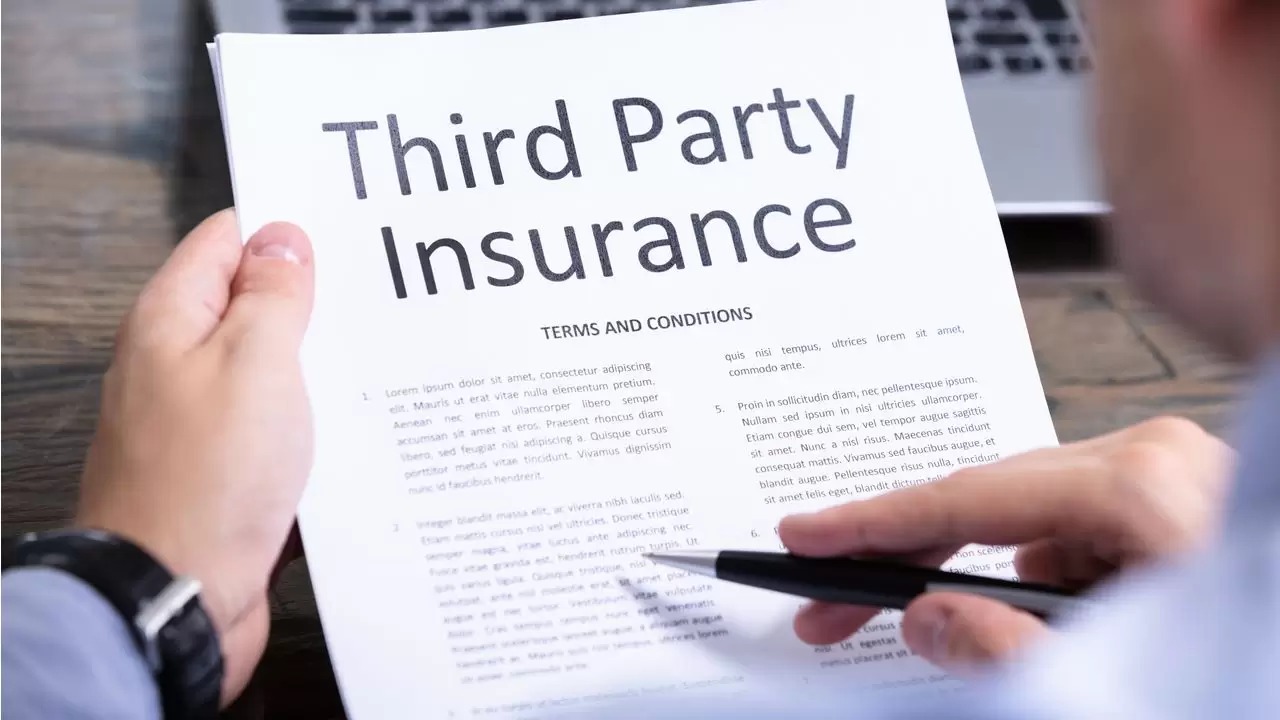

Finance
What Is A Third Party Insurance
Modified: December 30, 2023
Learn about third party insurance and its role in finance. Understand how this type of insurance provides coverage for individuals involved in accidents and liability issues.
(Many of the links in this article redirect to a specific reviewed product. Your purchase of these products through affiliate links helps to generate commission for LiveWell, at no extra cost. Learn more)
Table of Contents
- Introduction
- Definition of Third Party Insurance
- Importance of Third Party Insurance
- Coverage and Benefits of Third Party Insurance
- Examples of Third Party Insurance Claims
- Comparison of Third Party Insurance with Comprehensive Insurance
- How to Purchase Third Party Insurance
- Factors to Consider Before Choosing Third Party Insurance
- Conclusion
Introduction
Insurance plays a vital role in protecting individuals, businesses, and properties from unforeseen circumstances. One particular type of insurance that is often overlooked but equally essential is third party insurance. The concept of third party insurance may sound unfamiliar to some, but it is crucial to understand its purpose and benefits.
In simple terms, third party insurance is a type of insurance coverage that provides financial protection to individuals or businesses against claims made by a third party. These claims typically arise due to the insured party causing damage, injury, or loss to another person or their property. It acts as a safeguard against the potential financial burden resulting from such claims.
Third party insurance can be applicable in various situations. For example, in the case of motor vehicle insurance, it covers the costs of damages caused by the insured person’s vehicle to another person’s vehicle or property. Likewise, in the context of business liability insurance, it protects against claims made by customers or clients for injuries or damages that occurred on the business premises or while using their products or services.
While third party insurance may not be a mandatory requirement in all countries, it is highly recommended to individuals and businesses to mitigate potential legal and financial liabilities. Accidents and unforeseen circumstances can happen at any time, and the costs associated with legal proceedings and compensation claims can be substantial. Having adequate third party insurance coverage ensures that individuals and businesses are protected from financial ruin in such situations.
It is important to note that third party insurance is distinct from comprehensive insurance, which provides coverage for damage to the insured party’s own vehicle or property, in addition to coverage for third party claims. Third party insurance focuses solely on protecting against liability claims made by third parties.
In the following sections, we will delve deeper into the definition, importance, coverage, and benefits of third party insurance. We will also provide examples of third party insurance claims and discuss how it differs from comprehensive insurance. Furthermore, we will explore the factors to consider when purchasing third party insurance and provide insights on making an informed decision.
Definition of Third Party Insurance
Third party insurance, also known as liability insurance, is a type of insurance coverage that protects an individual or business against financial losses resulting from claims made by a third party. In this context, a third party refers to someone who is not the insured party or the insurer, but rather a person or entity affected by the actions of the insured party.
Third party insurance is primarily designed to cover the legal liabilities of the insured party when they cause damage, injury, or loss to another person or their property. The purpose of this insurance is to provide financial protection and ensure that the insured party can compensate the affected third party for their losses.
The scope of coverage provided by third party insurance varies depending on the specific policy and the type of insurance. In general, it can include compensation for property damage, bodily injury, medical expenses, legal expenses, and loss of income or earning capacity. The insurance policy will specify the maximum coverage limits for different categories of claims.
One common example of third party insurance is motor vehicle insurance. If an insured driver causes an accident that damages another person’s vehicle, the third party insurance covers the cost of repairs or replacement for the damaged vehicle. It may also provide coverage for any physical injuries sustained by the driver or passengers of the other vehicle.
In addition to motor vehicle insurance, third party insurance is also applicable in various other contexts, such as professional liability insurance for businesses, public liability insurance for property owners, and product liability insurance for manufacturers and sellers. Each type of insurance provides coverage for specific risks and liabilities associated with the respective activities.
It is important to note that third party insurance is distinct from comprehensive insurance. While third party insurance covers claims made by third parties, comprehensive insurance provides coverage for damages or losses sustained by the insured party’s own property or vehicle in addition to the coverage for third party claims.
Now that we have a better understanding of the definition and scope of third party insurance, let’s explore its importance and the benefits it offers to individuals and businesses.
Importance of Third Party Insurance
Third party insurance holds significant importance for both individuals and businesses. It provides essential financial protection against potential liabilities and claims made by third parties. Here are some key reasons highlighting the importance of having adequate third party insurance coverage:
- Legal Compliance: In many jurisdictions, third party insurance is a legal requirement, especially in scenarios like motor vehicle insurance. Failing to have the required coverage can result in hefty fines, legal consequences, and even loss of driving privileges. By having the necessary third party insurance, individuals and businesses can ensure compliance with the law.
- Financial Security: Accidents and mishaps can occur unexpectedly, leading to property damage, injuries, or even fatalities. The costs associated with legal defense, compensation claims, and medical expenses can be substantial. Without third party insurance, individuals and businesses would have to bear these costs out of their pockets, potentially causing severe financial strain. Having adequate insurance coverage helps mitigate this risk and provides a safety net against unexpected financial burdens.
- Protection against Liability Claims: Whether you are a business owner or an individual, there is always a risk of causing harm or damage to others unintentionally. This can range from a simple slip and fall incident on your property to a car accident caused by your negligence. Third party insurance protects you from the financial consequences of such situations by covering the costs of compensation claims, legal expenses, and medical bills that may arise from your liability towards the third party.
- Peace of Mind: Knowing that you have adequate third party insurance coverage provides peace of mind. It allows you to go about your daily activities without worrying about the potential financial implications of any unfortunate incidents that may occur. Whether you are a small business owner, a driver on the road, or a homeowner, having the right insurance coverage gives you the confidence to navigate life and business with reduced stress.
- Protecting Personal and Business Assets: Without third party insurance, personal and business assets may be at risk in the event of a liability claim. In situations where compensation claims exceed an individual’s or business’s financial resources, personal savings, property, and even future earnings may be seized to satisfy the claim. Third party insurance acts as a protective shield, ensuring that such assets are safeguarded from potential loss.
Ultimately, the importance of third party insurance lies in its ability to provide financial protection, legal compliance, peace of mind, and asset preservation. The risks of accidental damage or injury are ever-present, and having the appropriate insurance coverage can make a significant difference in managing the potential aftermath of an unfortunate incident.
Next, let’s explore the coverage and benefits offered by third party insurance to get a clearer understanding of its value.
Coverage and Benefits of Third Party Insurance
Third party insurance offers a range of coverage and benefits to individuals and businesses. Understanding these coverage options and benefits is crucial in determining the appropriate insurance policy. Let’s take a closer look at the coverage and benefits provided by third party insurance:
- Property Damage Coverage: Third party insurance covers the costs of repairing or replacing the property of a third party that has been damaged due to the actions of the insured party. This can include damage to vehicles, buildings, or other physical property.
- Bodily Injury Coverage: In the event that the insured party causes bodily injury to a third party, third party insurance can cover medical expenses, rehabilitation costs, and any associated legal fees. This coverage ensures that the injured party receives the necessary medical care without bearing the financial burden themselves.
- Legal Expenses Coverage: Third party insurance also offers coverage for legal expenses that may arise from liability claims made by third parties. These expenses can include hiring lawyers, court fees, and other related costs associated with defending against the claim.
- Loss of Income/Earning Capacity Coverage: If a third party sustains an injury as a result of the insured party’s actions and is unable to work or earn income, third party insurance may cover the loss of income or earning capacity. This ensures that the injured party is compensated for their financial losses due to the incident.
- Peace of Mind: Knowing that you have third party insurance coverage provides peace of mind. It allows you to engage in various activities, such as driving or running a business, with the assurance that you are protected from potential financial liabilities and claims.
- Cost Savings: In the event of a liability claim, the costs associated with compensation, legal defense, and medical expenses can be substantial. With third party insurance coverage, these expenses are largely covered by the insurance provider, resulting in significant cost savings for the insured party.
- Asset Protection: Third party insurance safeguards personal and business assets from potential loss. In the event of a liability claim, the insurance coverage ensures that the assets are protected, reducing the risk of financial devastation and allowing individuals and businesses to maintain their financial stability.
It is important to carefully review the coverage details and policy terms of a third party insurance policy to ensure that it matches your specific needs. Each insurance provider may offer different coverage limits and additional benefits, so it is essential to compare policies and select the one that best suits your requirements.
Now that we understand the coverage and benefits provided by third party insurance, let’s explore some examples of third party insurance claims to further illustrate its significance in real-life situations.
Examples of Third Party Insurance Claims
Third party insurance claims can arise in various scenarios where an individual or business causes harm or damage to a third party. Let’s explore some common examples of third party insurance claims:
- Motor Vehicle Accidents: One of the most common scenarios where third party insurance claims occur is in motor vehicle accidents. If an insured driver causes an accident that results in property damage or bodily injury to another driver or pedestrian, the third party insurance coverage will come into play. This can include compensation for repairing or replacing the damaged vehicle, medical expenses for injuries sustained, and legal expenses for any resulting lawsuits.
- Public Liability Claims: Businesses that have public interactions, such as retail stores or restaurants, can face third party liability claims if a customer or visitor suffers an injury on their premises. Slip and fall accidents, injuries from falling objects, or even incidents involving faulty products or services can lead to claims for medical expenses, rehabilitation costs, and other damages. Third party insurance coverage protects businesses from the financial consequences of such claims.
- Professional Liability Claims: Professionals such as doctors, lawyers, architects, and consultants can face third party liability claims for errors, negligence, or omissions in their professional services. If a client suffers harm or financial loss due to the actions or advice of the professional, they may file a professional liability claim. Third party insurance coverage helps professionals handle the costs of legal defense, settlements, or judgments in such cases.
- Product Liability Claims: Manufacturers or sellers of products can be held liable if their products cause harm, injury, or property damage to a third party. Product liability claims can arise from defects, inadequate warnings or instructions, or any other product-related issues. Third party insurance covers the costs of legal defense, settlements, or judgments that may result from these claims.
- Construction Site Accidents: Construction companies can face third party liability claims if accidents occur at the construction site and cause injuries to workers, bystanders, or neighboring properties. These claims can range from falls, falling objects, or equipment malfunctions. Third party insurance coverage provides financial protection against compensation claims, legal expenses, and property damage claims.
These examples demonstrate how third party insurance plays a crucial role in protecting individuals and businesses from the financial repercussions of liability claims. By having adequate third party insurance coverage, individuals and businesses can mitigate the risks associated with accidental damage, injuries, or losses caused to third parties.
Next, let’s compare third party insurance with comprehensive insurance to understand the differences between the two types of coverage.
Comparison of Third Party Insurance with Comprehensive Insurance
When it comes to insurance coverage for vehicles, there are two main options: third party insurance and comprehensive insurance. While both types of coverage provide financial protection, they differ in terms of the extent of coverage and the situations they address. Let’s compare third party insurance with comprehensive insurance to understand their differences:
Third Party Insurance:
Third party insurance, as discussed earlier, focuses on protecting the insured party against liability claims made by third parties. It covers the costs of property damage, bodily injury, and legal expenses incurred by the third party due to the actions of the insured party.
However, it is important to note that third party insurance does not cover the costs of repairing or replacing the insured party’s own vehicle or property if it is damaged in an accident. It also does not provide coverage for theft or any other non-accident-related damage to the insured party’s property.
Comprehensive Insurance:
Comprehensive insurance, on the other hand, offers a wider scope of coverage. In addition to providing coverage for third party liability claims, comprehensive insurance also covers damage to the insured party’s own vehicle or property, even if it is caused by non-accident-related factors such as theft, vandalism, fire, or natural disasters.
With comprehensive insurance, the insured party can file a claim and receive compensation for the repair or replacement costs of their damaged vehicle, regardless of who is at fault. This type of insurance provides a higher level of protection and can offer greater peace of mind.
Choosing the Right Coverage:
Deciding between third party insurance and comprehensive insurance depends on several factors, including the value of your vehicle, your budget, and your risk tolerance. If you have a high-value vehicle or live in an area with a high risk of theft or natural disasters, comprehensive insurance may be the better option to ensure full coverage and protection.
On the other hand, if you have an older or lower-value vehicle and are looking for a more cost-effective option, third party insurance may be sufficient, especially if comprehensive insurance premiums are significantly higher.
It is essential to assess your individual needs, consider your financial situation, and consult with insurance professionals to determine which type of coverage is most suitable for you.
Now let’s explore the process of purchasing third party insurance and the factors to consider before making a decision.
How to Purchase Third Party Insurance
Purchasing third party insurance is a relatively straightforward process. Here are the steps to follow when acquiring third party insurance coverage:
1. Research and Compare:
Start by researching different insurance providers that offer third party insurance policies. Look for companies that have a good reputation, strong financial stability, and positive customer reviews. Compare the coverage options, premiums, and additional benefits offered by different insurers to find the best fit for your needs.
2. Assess Coverage Limits:
Review the coverage limits provided by each insurance policy. Ensure that the policy covers the necessary categories, such as property damage, bodily injury, legal expenses, and loss of income. Consider your specific requirements and assess whether the coverage limits offered meet your expectations and potential liabilities.
3. Understand Exclusions and Conditions:
Thoroughly read and understand the policy exclusions and conditions. This will help you identify any restrictions or situations where the coverage may not apply. Familiarize yourself with the terms and conditions of the policy to avoid any surprises or misunderstandings in the event of a claim.
4. Obtain Quotes:
Contact the insurance providers you have shortlisted and request quotes for third party insurance coverage. Provide accurate and detailed information about the insured party, such as personal or business details, driving record (if applicable), and any other required information. Compare the quotes to determine the most competitive pricing for the desired coverage.
5. Seek Professional Advice:
If you are unsure about any aspect of the third party insurance policy, consider seeking advice from an insurance agent or broker. They can provide expert guidance tailored to your specific situation and help you navigate through the complexities of insurance terminology and policy selection.
6. Make an Informed Decision:
Based on your research, quotes, and professional advice, make an informed decision about which insurance provider and policy best meet your needs. Consider factors such as the reputation of the insurance company, the comprehensiveness of the coverage, and the affordability of the premiums.
7. Purchase the Policy:
Once you have made a decision, contact the chosen insurance provider to finalize the purchase of the third party insurance policy. Provide any necessary documentation or information required to complete the process. Review the policy details, payment terms, and any additional paperwork carefully before signing the agreement.
By following these steps, you can purchase third party insurance coverage that aligns with your requirements, offers comprehensive protection, and provides peace of mind in the face of potential liabilities.
Now, let’s explore the factors you should consider before choosing third party insurance.
Factors to Consider Before Choosing Third Party Insurance
When selecting a third party insurance policy, it is important to carefully consider several factors to ensure that you are making an informed decision. Here are some key factors to keep in mind:
1. Coverage Limits:
Examine the coverage limits provided by the insurance policy. Assess whether they are sufficient to meet your potential liabilities in the event of a third party claim. Consider factors such as the value of your assets, the nature of your activities, and the risks involved to determine the appropriate coverage limits for your specific needs.
2. Premiums and Cost:
Evaluate the premiums associated with the third party insurance coverage. Compare quotes from different insurers to find the most competitive pricing. Take into account your budget and the value of the coverage being offered. Be cautious of extremely low premiums that may indicate limited coverage or higher deductibles.
3. Policy Exclusions and Conditions:
Read the policy exclusions and conditions carefully. Understand the situations and circumstances where the coverage may not apply. Ensure that the policy aligns with your specific needs and activities. If any exclusions seem unreasonable or too restrictive, consider discussing them with the insurance provider or seeking coverage from a different insurer.
4. Insurer Reputation:
Research the reputation and financial stability of the insurance provider. Look for insurers with a strong track record of customer satisfaction, prompt claims settlement, and reliable customer support. Read reviews and seek recommendations from trusted sources to gain insights into the insurer’s performance and reliability.
5. Customer Support:
Consider the level of customer support provided by the insurance company. Evaluate their responsiveness, accessibility, and willingness to assist in the event of a claim or any other insurance-related queries. A supportive and reliable insurer can make a significant difference in the overall insurance experience.
6. Additional Benefits:
Explore any additional benefits or features offered by the insurance policy. Some insurers may provide value-added services such as roadside assistance, rental car coverage, or discounts on other types of insurance when bundling policies. Assess whether these additional benefits align with your needs and add value to your overall insurance coverage.
7. Policy Terms and Renewal:
Review the policy terms, including the duration and renewal process. Understand the terms and conditions related to policy cancellation, changes, and renewal. Consider the flexibility and convenience that the insurer offers in terms of policy management and renewal options.
By carefully considering these factors, you can choose a third party insurance policy that provides comprehensive coverage, aligns with your specific requirements, and offers reliable protection in the event of a third party claim.
Next, let’s summarize the key points discussed in this article.
Conclusion
Third party insurance is a fundamental component of financial protection for individuals and businesses. It offers coverage and benefits that safeguard against liability claims made by third parties, providing peace of mind and financial security. Understanding the importance of third party insurance, the coverage it provides, and the process of purchasing a policy is essential for making informed decisions.
By having third party insurance, individuals and businesses comply with legal requirements, protect their assets, and mitigate potential financial liabilities. It covers a range of scenarios, including motor vehicle accidents, public liability claims, professional liability claims, product liability claims, and construction site accidents. Knowing that they have third party insurance coverage allows individuals and businesses to navigate daily activities and operations with reduced stress and financial risk.
When considering third party insurance, it’s important to compare coverage limits, understand policy exclusions, and assess the reputation and financial stability of insurance providers. While third party insurance provides liability coverage, comprehensive insurance offers additional protection for the insured party’s own property or vehicle. Evaluating your specific needs, budget, and risk tolerance is crucial in choosing the right coverage.
The process of purchasing third party insurance involves research, comparison, obtaining quotes, seeking professional advice, and making an informed decision. By following these steps, individuals and businesses can secure appropriate coverage that aligns with their specific requirements.
In conclusion, third party insurance is a vital aspect of risk management and financial protection. Whether it is securing individuals from liability claims or safeguarding businesses from potential legal and financial liabilities, third party insurance provides essential coverage and peace of mind. By understanding its importance, coverage options, and the factors to consider when choosing a policy, individuals and businesses can make confident decisions to protect their interests and ensure long-term financial stability.


